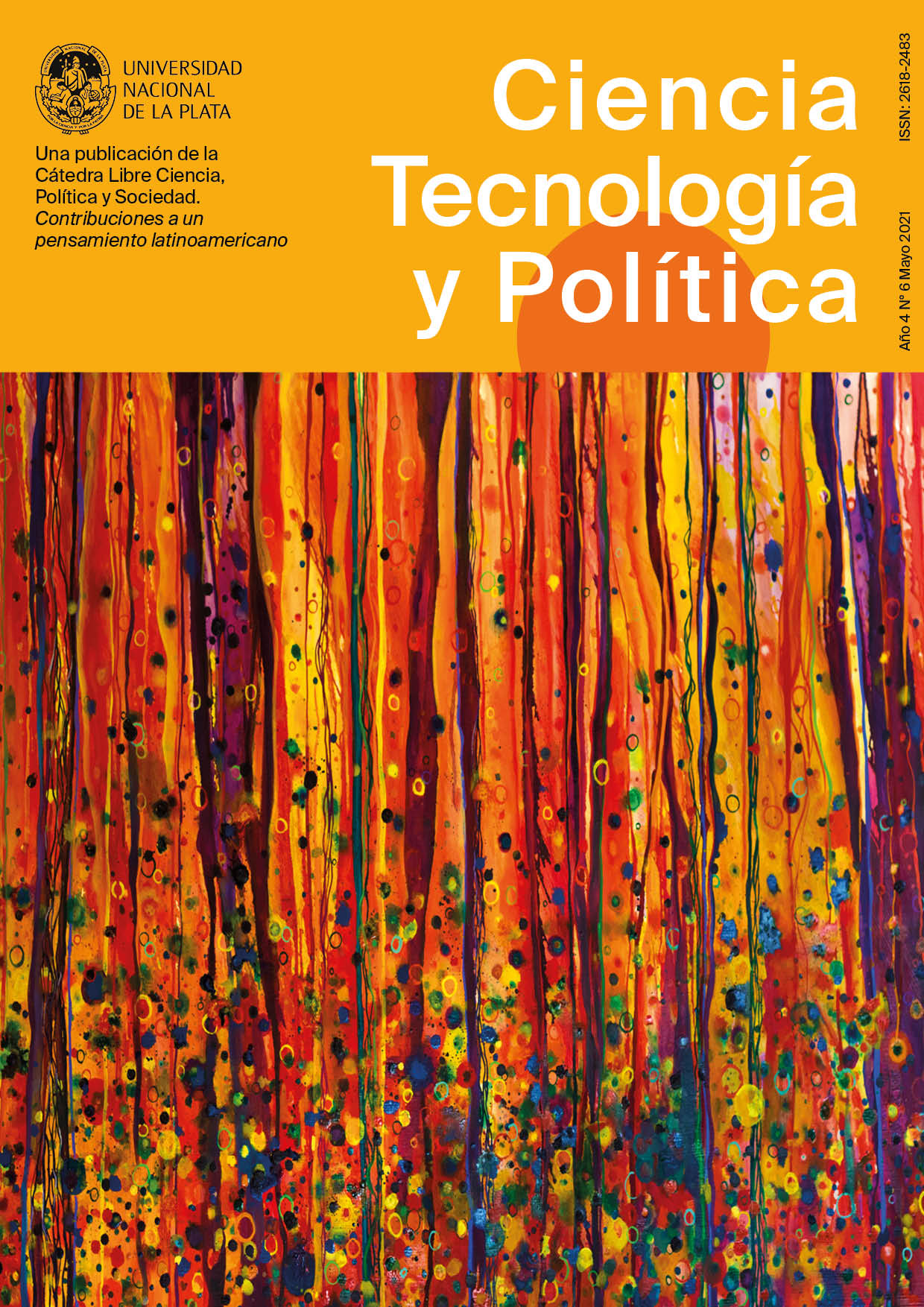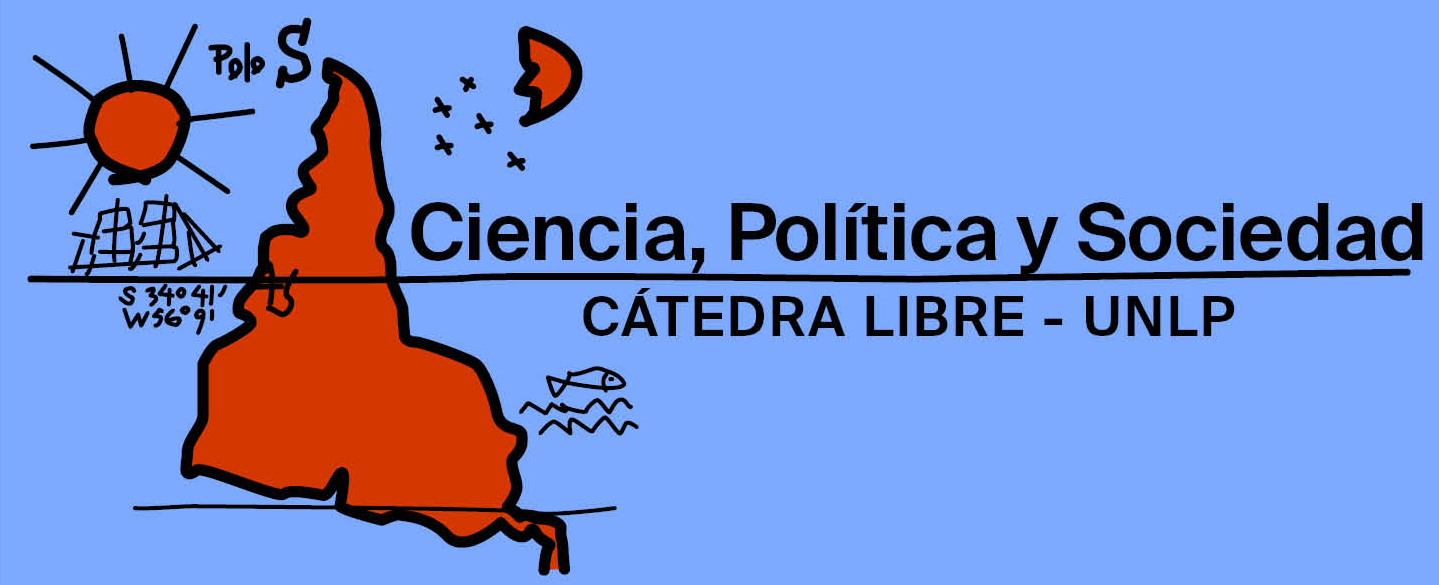Reflexiones sobre una posible inspiración socialista de la tecnología
DOI:
https://doi.org/10.24215/26183188e054Palabras clave:
tecnologías de inspiración socialista, alternativas tecnológicas, imaginarios tecnológicos, innovación en condiciones de escasezResumen
Se plantea la necesidad de contar con tecnologías inspiradas por valores e intereses diferentes de los prevalecientes en el capitalismo si se quiere alcanzar un orden social distinto, más justo e igualitario, que no ponga en riesgo el futuro del planeta. Se analizan las dificultades para lograrlo, tanto generales como específicamente “desde el Sur” y se muestra que también hay fortalezas en las que apoyarse. Se propone una forma de entender “tecnologías de inspiración socialista” y se sugieren caminos para abrirles condiciones de posibilidad.
Referencias
Arocena, R.; Sutz, J. (2020). The need for new theoretical conceptualizations on National Systems of Innovation, based on the experience of Latin America. Economics of Innovation and New Technology. https://doi.org/10.1080/10438599.20 20.1719640
Braverman, H. (1975). Trabajo y capital monopolista. Editorial Nuestro Tiempo.
Correa, C. M. (2003). Managing the Provision of Knowledge: The Design of Intellectual Property Laws. En: Inge Kaul; Pedro Conceição; Katell Le Goulven; Ronald U. Mendoza (eds.), Providing Public Goods (pp. 410-430). NY: PNUD-Oxford University Press.
David, P. (1985). Clio and the Economics of QWERTY. The American Economic Review, 75(2), Papers and Proceedings of the Ninety-Seventh Annual Meeting of the American Economic Association, 332-337.
Ehn, P.; Nilsson, E.; Topgaard, R. (2014). Making Futures. Marginal Notes on Innovation, Design, and Democracy. The MIT Press.
Galante, O; Marí, M. (2020). Jorge Sabato y el pensamiento latinoamericano en ciencia, tecnología, desarrollo y dependencia. Ciencia, Tecnología y Política, (3)5, e048. https://doi.org/10.24215/26183188e048
Lundvall, B.Å. (1985). Product Innovation and User-Producer Interaction. Industrial Development Research Series No. 31, Aalborg University Press.
Marglin, S. (1977). Orígenes y funciones de la parcelación de tareas. ¿Para qué sirven los patrones. En: Gorz, A. (ed.), Crítica de la división del trabajo (pp. 45-96). Laia.
Misa, T. (1994). Retrieving Sociotechnical Change from Technological Determinism. En Smith, M. R.; Marx, L. (eds.), Does Technology Drive History? The dilemma of technological determinism (pp. 115-142). The MIT Press.
Noble, D. (1977). America by Design. Science, technology and the Rise of Corporate Capitalism. Knopf Books.
Noble, D. (1979). Social choice in machine design: the case of numerically controlled machine tools. En Zimbalist, A. (ed.), Case Studies on the labour process (pp. 18-50). Monthly Review Press.
Ostrom, E. (1996). Crossing the Great Divide: Coproduction, Synergy, and Development. World Development, 2(4) 6, 1073-1087.
RED PLACTS (2020). Otro estilo científico y tecnológico es posible. Ciencia, Tecnología y Política, (3)5, e050. https://doi.org/10.24215/26183188e050
Rogers, E.M. (1995). Diffusion of Innovations, Fourth edition. Free Press.
Rothwell, R.; Freeman, C.; Horlsey, V.; Jervis, A.; Robertson, J; Towsend, J. (1974). SAPHO updated-Project SHAPO phase II. Research Policy, (3)3, 258-291.
Sabato, J.; Botana, N. (1968). La ciencia y la tecnología en el desarrollo futuro de América Latina. Revista de la Integración 3, 15-36.
Srinivas, S.; Sutz, J. (2008). Developing countries and innovation. Searching for a new analytical approach. Technology in Society, Vol.30, Issue 2, 129-140.
Sen, A. (2000) Desarrollo y libertad. Planeta.
Von Hippel, E. (1998). The Sources of Innovation. Oxford University Press.
Zuboff, S. (2019). The Age of Surveillance Capitalism: The Fight for a Human Future at the New Frontier of Power. Public Affairs.
Publicado
Número
Sección
Licencia
Los/as autores/as cuyos textos se publiquen en esta revista ceden de forma no exclusiva sus derechos patrimoniales en favor del editor. Eso significa que los/as autores/as podrán realizar otros acuerdos contractuales independientes y adicionales para la difusión de su texto publicado en esta revista. Como por ejemplo, incluirlo en un repositorio institucional, temático o de otro tipo, publicarlo en un libro, u otros, siempre que indique explícitamente que el trabajo se publicó por primera vez en esta revista.
La responsabilidad de cada trabajo publicado en cuanto a su contenido recae exclusivamente en los/as autores/as del mismo, deslindando a los editores de cualquier responsabilidad legal.
Los textos de la revista se difundirán bajo licencia Creative Commons 4.0 BY-NC-SA. Eso significa que los lectores son libres de:
1) Compartir, copiar y redistribuir el material en cualquier medio o formato.
2) Adaptar, remezclar, transformar y crear a partir del material, bajo las siguientes condiciones:
- a) Atribución — se debe dar crédito a esta obra de manera adecuada, proporcionando un enlace a la licencia, e indicando si se han realizado cambios.
- b) Uso No Comercial — no se puede hacer uso del material publicado con fines comerciales.
- c) Compartir Igual — Si remezcla, transforma o crea a partir del material, debe distribuir su contribución bajo la misma licencia del original.




































